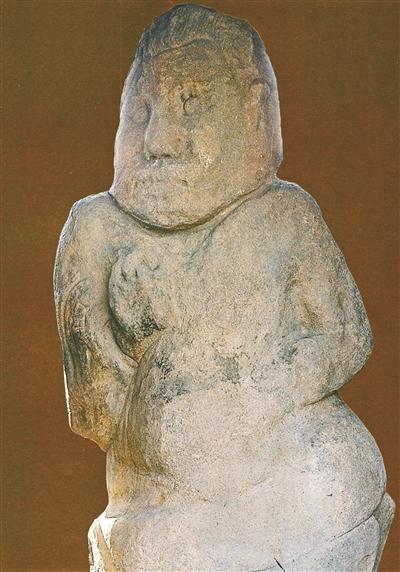 |
|
The stone statue of Niulang. [Photo/Beijing Youth Daily] |
The images of the most authoritative statues of Niulang the cowherd and Zhinyu the weaver girl in Chinese folklore set off heated discussion recently, with netizens complaining they are disappointed by their appearance.
The discussion was triggered by a Weibo post with illustrations regarding the Qixi Festival, which said, "the most standard statues of Niulang and Zhinyu are located at Doumen town in Shaanxi province, where the Emperor Wudi in the Han Dynasty (206 BC-AD 220) dug a Kunming pool" .
While the pictures show quite a rough carving style of the stone statues, totally contrary to the beautiful story of Niulang and Zhinyu, some netizens complained that "I don't even want to meet once in a year, with such an appearance".
In the romantic legend, Niulang and Zhinyu, separated by the Heavenly Queen, are allowed to meet once a year on the seventh night of the seventh month, on a bridge across the Milky Way formed by magpies. This is celebrated in the Qixi Festival, or the Seventh Night Festival, which can be traced back to the Han Dynasty.
In the photos on Weibo, the faces of Niulang and Zhinyu are large and round, with large noses, which look quite funny. Some netizens jokingly said that, "No wonder that they are separated by Heavenly Queen; if they stay together every day, maybe their eyes won't adapt to it", or "It destroys how I imagine Zhinyu".
According to Beijing Youth Daily, the stone statues of Niulang and Zhinyu from the Western Han Dynasty (206 BC – AD 24), are in Changjiazhuang village and a cotton mill in Doumen town in Xixian New Area of Shaanxi province, respectively. A staff member from a local cultural relic bureau said that the two statues happen to stand at the two sides of the Kunming pool ruin, just like Niulang and Zhinyu at the two sides of the Milky Way. Locals used to call the stone statues "stone grandpa" and "stone grandma", and will worship them during festivals to pray for safety and fortune, he said.